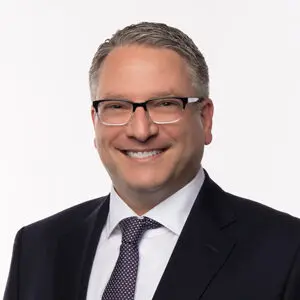Anxiety Treatment in Plano, TX
It is normal at times to feel anxious or worried. Sometimes these feelings can even interfere with daily activities or make it difficult to carry out a normal routine. You may even avoid places or situations to prevent these feelings from occurring.
Anxiety treatment is receiving care for a certain type of anxiety through psychotherapy or medical care.
Here at Friedman Psychiatry, we provide the best in psychiatric care and counseling for adults at our psychiatric clinic in Plano, TX. Our highly experienced mental health providers in Plano, we provide comprehensive diagnosis & personalized treatment plans for patients experiencing symptoms of anxiety in Richardson, Allen, and Murphy. Learn more about anxiety and call to schedule your consultation with Dr. Friedman today!
What is Anxiety?
Anxiety is a natural and common human emotion characterized by feelings of unease, worry, fear, or apprehension. It is often accompanied by physical sensations such as increased heart rate, rapid breathing, sweating, restlessness, and difficulty concentrating. Anxiety can be a normal response to stressful or challenging situations, helping us stay alert and focused.
What Are the Symptoms of Anxiety?
Symptoms of anxiety may start during childhood or the teen years and continue into adulthood. Anxiety is a normal response to certain events in life, but an anxiety disorder is not normal and needs professional treatment. Here are several symptoms that someone with anxiety disorder may experience:
Emotional symptoms may include:
- Feelings of apprehension or dread
- Feeling tense or jumpy
- Restlessness or irritability
- Anticipating the worst
- Being watchful for signs of danger
Physical symptoms may include:
- Pounding or racing heart and shortness of breath
- Sweating
- Tremors and twitches
- Headaches
- Fatigue and insomnia
- Upset stomach, frequent urination or diarrhea
Types of Anxiety
Anxiety disorders, a group of mental health conditions characterized by excessive fear, worry, and apprehension, can have a significant impact on a person’s daily life, and as such, the National Institute of Mental Health (NIMH) has identified and listed out several different types of anxiety disorders that affect people:
- Generalized Anxiety Disorder (GAD)-exaggerated worry about everyday life
- Social anxiety disorder-intense fear about social interaction
- Phobias-places, events or objects create powerful reactions of strong, irrational fear
- Agoraphobia-a type of anxiety disorder in which you fear and avoid places or situations that might cause you to panic and make you feel trapped, helpless or embarrassed
- Selective mutism– a severe anxiety disorder where a person is unable to speak in certain social situations, such as with classmates at school or to relatives they do not see very often
- Separation anxiety disorder– fear of being separated from a particular person, persons, or even a pet
- Substance/medication-induced anxiety disorder, involving intoxication or withdrawal or medication treatment
Anxiety is the most common form of emotional disorder and can affect anyone at any age
What are the Risk Factors for Anxiety
Trauma
At some time in their lives, children who experienced abuse, trauma, or observed horrific events are more likely to develop an anxiety condition. Anxiety disorders can also emerge in adults who have gone through traumatic experiences.
Illness-Related Stress
A major sickness or health problem can cause a great deal of stress, especially when it comes to the course of treatment and its consequences.
Accumulated Stress
Excessive anxiety can be brought on by a significant life event or a string of minor stressful circumstances. A few instances are a family member’s passing, stress at work, or persistent financial worries.
Personality
Anxiety disorders are more common in some personality types than in others.
Coexisting Mental Health Disorders
Anxiety disorders frequently coexist with other mental health conditions, such as depression.
Family History
There is a possibility that anxiety problems are inherited; they tend to run in families.
Substance Use
Anxiety symptoms may be brought on by drug or alcohol abuse, usage, or withdrawal. It’s critical to recognize how substance-related issues affect anxiety.
What is the Treatment for Anxiety Disorders?
These feelings that ones experiences can be so severe that they interfere with a person’s daily life, relationships, and overall quality of life. The good news is that anxiety disorders are treatable, and there are several approaches to treatment that have been shown to be effective. Here are some of the most common treatments for anxiety disorders:
Psychotherapy, or talk therapy, is a popular treatment method used by many mental health care providers.
This therapeutic method can be implemented across a variety of mental illnesses, and its ultimate goal is to bring about improvements in your health. You can learn tools to use and strategies to cope with anxiety when it occurs.
Medication is also available as a treatment option for anxiety and usually involves antidepressants and sedatives. These medications help to balance brain and body chemistry, prevent anxiety episodes, and curb the severity of symptoms. Speak with Dr. Friedman to see if medication is the best route for your anxiety.
If your anxiety is interfering with your family, work, or everyday life, you should seek professional help. Talking to a medical professional can help if your fear or worry is unmanageable or you feel like it is getting out of control. Your worries may not go away on their own, and they may get worse over time if you don’t seek help. Six months is a good measure to see if things are improving or getting worse.
If you have suicidal thoughts or behaviors, seek emergency treatment immediately.
Schedule an Anxiety Treatment in Plano, TX
See a provider before your anxiety ruins your life or your relationships. It’s easier to treat if you get help early. The ultimate goal is to bring about improvements in your everyday life. Contact Friedman Psychiatry today to speak with one of our providers

